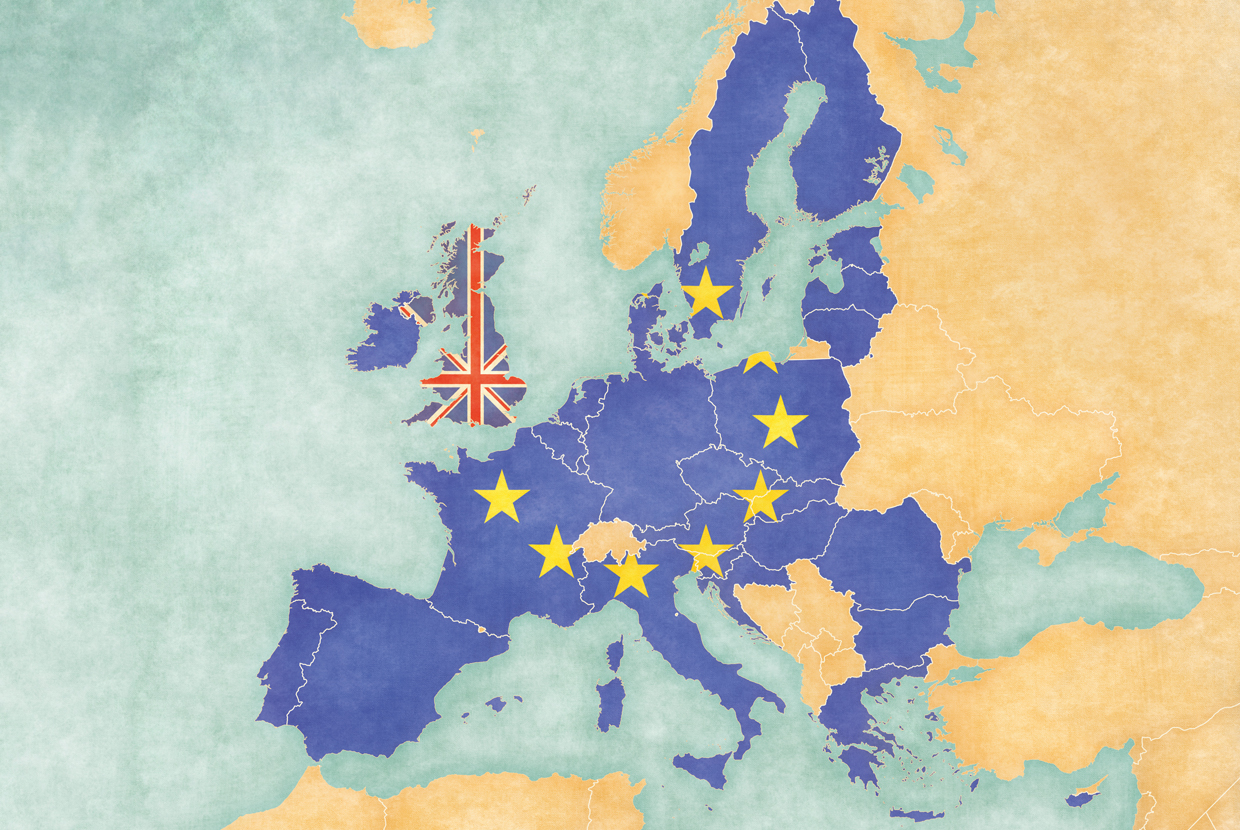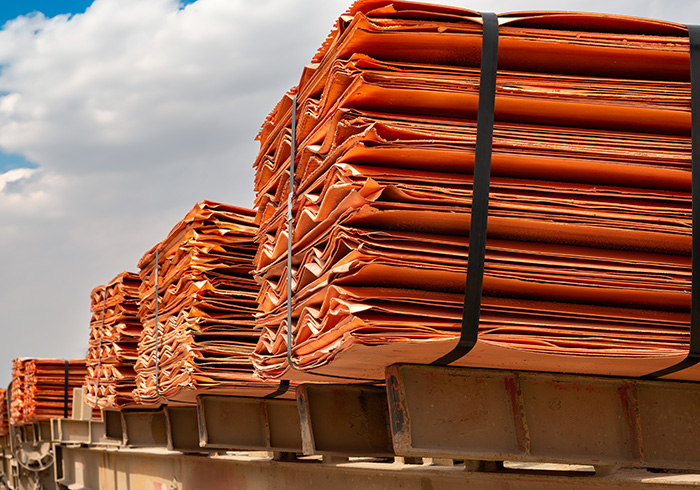Sofia Lotto Persio unravels the Brexit mess to understand how the vote to leave will affect the UK’s trade future and whether the country can have its cake, and eat it too.
What seemed a remote possibility just a few months ago, has happened.
The UK population has voted to leave the European Union. At the time of writing, a week after the vote, the dust has yet to settle and the vision for the future is unclear. In the immediate aftermath, the country felt an economic shock, with shares and the pound plunging, but the markets have already more or less recovered those losses, at least for now.
Volatility, however, remains high, due to the complete and utter chaos engulfing Westminster, the political heart of the country.
The show of political unity displayed after the brutal murder of Labour MP Jo Cox melted away the moment Conservative Prime Minister David Cameron resigned and the country’s leadership was opened up for grabs. His successor, Theresa May, won the leadership contest withing two weeks of announcing her bid. She formed a new government in mid-July, creating two ministries dedicated to international trade and to exiting the EU respectively.
On the opposition side, deep-rooted internal disapproval of Labour leader Jeremy Corbyn resurfaced to call for his resignation – which he rejected, but agreed to a new leadership election he is confident of winning.
Adding to the divisive atmosphere, Northern Ireland and Scotland, where the majority voted to stay, called for their people’s will to be respected and for their countries to remain in the EU. In particular, Scotland’s First Minister Nicola Sturgeon clearly stated that a second referendum on Scotland’s independence from the UK is on the table, and met with European leaders to discuss what the options for the country are.
Given the significant political changes caused by the vote, some analysts expect a general election to be called by the end of the year, as most members of parliament favoured remaining in the EU. “The UK Parliament has neither the appetite nor the mandate for implementing the UK’s exit from the EU, making an early election highly likely,”
Edward George, head of group research at Ecobank, writes in a statement following the vote. This unprecedented level of political uncertainty is due to last at least until, and possibly even after, the UK formally invokes Article 50 – the Lisbon Treaty chapter outlining a member country’s right to leave the Union. Only then can formal negotiations between the UK and the 27 EU member states start, but exactly when that will happen is another unanswered question.
In an effort to contain uncertainty, European leaders have demanded a swift start of a process that could take years to unravel, but Cameron made it clear that he would have no part in this and passed the poisoned chalice to his successor. For now, the government is setting up a Brexit unit made up of civil servants from different ministries to develop a plan for the negotiations.
The new prime minister faces the difficult tasks of negotiating a deal with the EU and reviewing many European laws governing various areas of policy – how many exactly, no one knows, and the House of Commons Library warned that “there is no totally accurate, rational or useful way of calculating the percentage of national laws based on or influenced by the EU”.
So what happens next? From a legal point of view, not much. “For the moment the UK remains bound by the laws enacted. We would assume that as the country leaves the EU, the UK will re-enact many regulations that affect trade finance, but there is of course an element of wait and see,” says Geoffrey Wynne, trade finance partner and head of the London office of Sullivan & Worcester.
Most of those contacted by GTR were reluctant to make any clear-cut comments about the present or the future and sought to reassure clients, and perhaps themselves, that Brexit represents a challenge, but their business won’t be fundamentally affected.
The picture should become clearer in the next few months. Until then, the wait-and-see attitude will affect many areas more or less related to trade and export finance. This uncertainty will have an impact on trade deals and investment, if it has not done so already.
Both Standard & Poor’s and Fitch have lowered the country’s credit rating and expressed a negative outlook. S&P also lowered the EU’s credit rating, but maintained a stable outlook.
“Some of the investment plans will be cancelled altogether, especially for those companies that use the UK as a gateway to the rest of the EU. Other investment plans will be put on hold until the uncertainty about what will happen to trade with the EU is resolved, and that can take two or more years,” Raoul Leering, head of international trade research at ING, tells GTR.
Trade vs movement
The biggest question on everyone’s mind is: what will be the deal between the UK and the EU? Striking a trade agreement is going to be a priority. “We are in unchartered territories. We have massive challenges and the first thing we need to do is to protect our trading position. [There is] no mistaking UK government is in a weaker position as it tries to negotiate new trade agreements,” says Gabriel Buck, managing director of GKB Ventures.
Some believe that the European leaders will seek to make an example of the UK and won’t concede an easy trade deal. Others think that, considering how much there is to lose, a mutually-beneficial settlement will be reached.
“The UK and its European partners would have an interest in reaching an amicable resolution threatening neither the economic stability of the UK nor the delicate balance of the entire EU,” says Thanos Papasavvas, co-founder and CIO at Equant Analytics.
In a press conference on June 24, EU Commission president Jean-Claude Juncker stated his wish for the UK to remain a “close partner in the future” and that ensuing trade negotiations reflect “interests of both sides” and “be balanced in terms of rights and obligation”. German chancellor Angela Merkel also warned against hasty decisions. “We need to remain calm and composed,” she said, speaking to the press in Berlin.
Throughout the referendum campaign, Leave supporters often used the example of the automobile trade between Germany and the UK to show how much the EU would have to lose if they were to impose trade barriers. In 2015, the German automotive industry exported more to Britain than to any other country in the world.
The automobile sector is quite a fitting example of how important the UK is to EU trade, but even so, Leave campaigners, whose slogan “take back control” included regulating migration flows into the country, are unlikely to get everything they want. Along with the freedom of movement for capital, goods and services, free movement of people is an element that is at the core of the European Economic Area (EEA) and something that non-EU countries participating in the EEA like Norway and Switzerland have accepted.
“If, for domestic political reasons, the UK is not willing to subscribe fully to the obligations as well as the privileges of the single market, then it will either have to negotiate a narrower and shallower trade relationship with the EU or instead fall back upon the general trading standards contained in the World Trade Organisation law,” explains Michael Dougan, professor of European law and Jean Monnet chair in EU law at the University of Liverpool.
“In either event, large sectors of the UK economy – not only manufacturing but also services, and especially financial services – will have to adjust to a significantly less favourable regulatory environment for the conduct of international trade.”
EU matters
So how much does trade with the EU truly matter to the UK? Around 44% of the country’s exports go to the EU, a share that has been falling as trade with non-EU countries increases. However, the UK imports over 50% of its products from the EU, and these could become more expensive purely from a currency perspective, as the sterling has dropped both against the dollar and against the euro (£1 bought US$1.34 and €1.21 at the time of writing).
While currency depreciation may create more competitive opportunities for exporters, it also increases their costs if their supply chain is in Europe. “The impact of a weaker pound is hard to assess, because there is also the impact running alongside from any potential economic downturn – it is difficult to look at one of these levers in isolation, particularly with the general feeling of uncertainty looming over us all,” says Stephen Lane, finance director at Xtrac, a British manufacturer that generates 50% of its revenue from sales to the EU, and won two prizes at the UK Export Excellence Awards.
“Although much of our supply chain is geographically local, we also purchase some specialist goods, services and capital equipment from the EU and other countries, and the effect of the weaker pound does also need to be considered in this context.”
It’s not all about trade agreements. For businesses operating across Europe and for fintechs in particular, a question mark is now placed on passporting rights: under current agreements, businesses receiving a licence from UK regulators can provide their services throughout the whole single market without having to apply for new licences, thanks to a cross-border arrangement.
If the UK was to exit the single market, this would no longer be in place and, unless a different agreement was reached, businesses would have to apply for a licence in another EU member country to benefit from passporting, a time-consuming process that could cost them their market position. Some international companies and institutions may decide to relocate elsewhere in the EU altogether, taking jobs and investment away from the UK and particularly from its capital.
London’s mayor Sadiq Khan is aware of these issues. He held talks with Oliver Letwin, a cabinet minister entrusted with the role of gathering various perspectives on the issues that need to be considered by the government’s Brexit unit, lobbying for London’s firms to maintain access to the single market and their passporting rights. Khan recently appointed Rajesh Agrawal, an Indian entrepreneur who made his fortune on the fintech scene in London, as deputy mayor for business and entreprise, with a mandate to look after London’s interests in the Brexit negotiations.
Another area the negotiations will have to consider is the UK’s position in the European Investment Bank (EIB), which has, most recently, committed £100mn for onlending to UK small and medium enterprises through peer-to-peer business lender Funding Circle. The UK is one of the EIB’s main shareholders, holding a 16.11% stake in the bank. Speaking to GTR, a bank spokesperson confirms that the bank’s activities in the country won’t change, at least until there is a treaty change, and that the lending currently disbursed will remain in place as per the terms of the contracts.
Risk vs opportunity
The victory of the Leave side came as a shock to everyone, including Leave campaigners, but there were signs even before the vote that the mood around the possibility of Brexit had begun to shift from “utter disaster” to “potential opportunity”.
A few speakers at the GTR UK Trade and Export Finance conference held in Liverpool on June 15 were decisively pro-EU, if only to avoid uncertainty: “It’s very difficult to see how Brexit would help exports,” said Graham Cole, RVL group chairman. Just as many had not yet made up their mind on the vote: “One day I’ll hear a case for leaving and the next day I’ll hear a good case for staying,” said Jan Ward, founder and CEO of Corrotherm International, admitting that the entrepreneur in her felt quite excited at the prospect of change.
She was not the only one feeling this way: “A lot of my clients are saying the excitement of the unknown could stimulate change in the economy,” said Andrew Charnley, head of trade and working capital, London and South, at Lloyds Banking Group. “One of the positive outputs of this debate is that it has raised awareness of exporting to different markets,” he added.
Elsewhere in these pages, UK Export Finance (UKEF) discusses how it can help the UK to trade, and in light of the uncertainty caused by the Brexit vote, a spokesperson tells GTR that the agency “remains ready and willing to help ensure no viable export fails for want of finance or insurance”.
But the exporting path for the UK remains challenging. Speakers at the Liverpool event noted that despite certain improvements, government agencies such as UK Trade and Investment (UKTI) and UKEF could still do better to work together and support exporters. “UKTI officers do not know what UKEF is,” said Guto Davies, managing director of sales and project finance at GE Capital.
According to Corrotherm’s Ward, sometimes there can also be a misalignment between what the agencies identify as an opportunity in a certain region and the UK sector capacity to match it.
“Chasing after rail projects in the Middle East is not clever,” she said, offering an example. “It is not something that the country is going to do well at, not at this point anyway.”
Where the UK has good sector expertise, for instance in oil and gas, there can be other sorts of market barriers. Speakers at the conference lamented that political pressure from the US is preventing UK banks from getting involved in an emerging market like Iran, whereas Germany and Italy have already made headwinds in paving the way for trading with the country.
In exiting the EU and looking for greener pastures, the UK is expected to leverage on its cultural links to members of the Commonwealth countries and the Anglophone sphere, but these will take time to develop. Ward pointed to the US as being a massive market that is often overlooked by exporters, who feel overwhelmed by its size. “It looks so huge [exporters] do not know where to start. That’s often a problem with those big markets,” she said, referring to China and India.
Entrepreneurial spirit will be key to success in finding and growing markets outside the EU. “The most successful clients are agile. They identify a market, they see a trend, and they go and make it happen,” said Charnely. According to him, UK exporters will need to do very good research into new markets, an area in which government support will be essential.
“Information and knowledge as to what can be done is going to be key,” Buck told GTR commenting on the vote. “The game has changed.”









